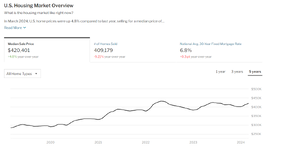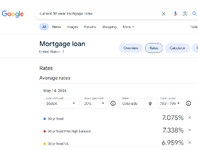Agree with meeting with a lender, just know your limits. Maybe things have changed in the last few years, but the couple times I’ve met with lenders, they were happy to approve and encourage a loan that would’ve taken 50% of our take home pay. MAX don’t spend over 25% of take home on mortgage and ideally it’s under 15% IMO.
We did a 30 year with 5% down in 2019. For the reasons Corb explained, thank God we did. Could’ve done more, but I’d rather keep a large emergency fund and pay the $50/mo in PMI (we eliminated that in under 2 years). When I set up my auto pay on month one, I automatically set an additional monthly principal payment to pay it off like a 15. When we had a family tragedy in 2021, I was able to shut that off while neither of us worked for a couple months and my wife took off 6 months to allow us to take care of ourselves and family. Once life settled, I turned it back on. If you lack discipline, do a 15 yr. If you can keep promises to yourself and won’t take your extra principle payment and turn it into a boat payment, do a 30 year yr and set to pay off early. Again, just my opinion worth what you paid for it.
Also, don’t rush and make sure you get what you want. Everything is dropping in price here including all new builds. It feels like you’re throwing $1900 away, but once you see how your first payment disperses, you will see you’re hardly paying principle for a decade. My $2K payment is nearly $600 in taxes and insurance and nearly $800 in interest. So only $600-700 is actually paying my house down. It will be even more lopsided with your 7% rate. I pay more than $700/mo on average in upkeep and all other other little things mentioned (mowers, appliances, snow blower, new garage doors, etc.) If it wasn’t for the massive appreciation over the last 5 years, it would’ve almost been just as beneficial to rent.


